
Open Science Actions by Science Europe Members
The transition to Open Science includes Open Access to research publications, data, and other types of output as well as opening up the entire research process. While Open Access remains high on the agenda, it is part of a more comprehensive effort that also considers other aspects such as research assessment systems, research infrastructures, policy and legislation, and investment and finance.
The members of Science Europe's Working Group on Open Science are at the forefront of this transition.
The overview below is not exhaustive and is being updated as we receive more information from our members.
Science Europe Members Practices on Open Science

Research Council of Finland (AKA)
The Academy of Finland requires that the scientific publications on the results of Academy-funded research projects are Open Access, and that the research data produced by the projects are made widely available. In addition, the Academy requires Open Access to the metadata of scientific publications and research data.

Austrian Science Fund (FWF)
The FWF is committed to advancing sustained Open Access to scholarly publications and research data. It requires and supports all project leaders and project staff members to make their peer-reviewed research outputs freely available through the Internet, if they result in full or in part from projects funded by the FWF.
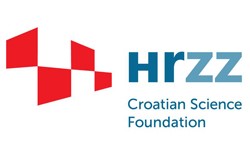
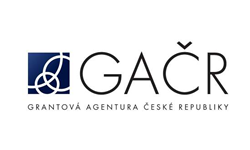

Danish Council for Independent Research (DFF)
Since June 2012, the public sector funds and foundations in Denmark have had a common Open Access policy. Based on Denmark’s National Strategy for Open Access adopted in June 2018 the goals and requirements of OA were tightened.
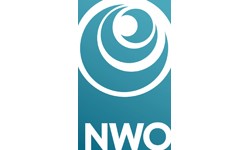
Dutch Research Council (NWO)
NWO aims for 100 percent Open Access. NWO therefore requires that all publications resulting from the research it funds must be made available as Open Access immediately upon publication. Funded projects must submit a Research Data Management Plan defined according to the Science Europe Guidelines for Research Data Management. To promote Open Science and to rewards and incentivize researchers who are at the forefront of this movement, NWO set up an Open Science Fund for projects that are specifically designed to stimulate Open Science practices.

Estonian Research Council (ETAG)
In 2015, Estonian Research Council established the Open Science Expert Group which has compiled the general principles and policy recommendations document for Open Science in Estonia. The purpose of the document is to create a common framework and understanding how to handle Open Science issues in Estonia and to encourage the development of national strategy and institutional policies in Open Science.

Executive Agency for Higher Education, Research, Development and Innovation Funding of Romania (UEFISCDI)
UEFISCDI is the coordinator of the Open science National Strategic Framework, which promotes: Open Access to the scientific publications, a FAIR and as open as possible research data, capacity building for Open Science and EOSC, citizen science, and rethinking the evaluation system taking into account open science practices. Actions proposed by the national strategic document are aligned to the principles of CoARA and UEFISCDI will implement trials and pilots of new indicators for research assessment in the context of open science. UEFISCDI is committed to support Open Science capacity building and the EOSC development as the co-coordinator of the National Open Science Cloud Initiative in Romania.


Foundation for Science and Technology (FCT)
The core of the policy on Open Access to publications arising from FCT-funded research is that all publications of research outputs, subject to peer-review, should be deposited in one of the Open Access repositories hosted within RCAAP as the latest immediately after publication. The policy on management and sharing of data and other results arising from FCT-funded research encourages researchers to share primary data and other data with the scientific community, by placing the data in Open Access databases within the shortest time possible.
In 2025, FCT launched its new Open Access policy. This revised policy aligns with the original principles of Plan S and applies to all funding calls with an application period ending after 7 February 2025.

French National Research Agency (ANR)
The French Research Agency (ANR) asks researchers to publish in Open Access under the Creative Commons Licence (CC-BY), and submitting, at the time of publication at the latest, the full text of the scientific publications in the national open archive HAL, and mention the ANR research project reference.


German Research Foundation (DFG)
DFG supports Open Science that is adequate to science and research. It also supports Open Access. The DFG does not see Open Access as an end, but as a tool in its efforts to promote scholarly communication in a manner which is in line with the needs of research.
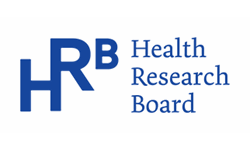
Health Research Board (HRB)
The HRB is committed to ensuring that its funded research is Open, accessible and usable, so it can have the greatest possible impact.
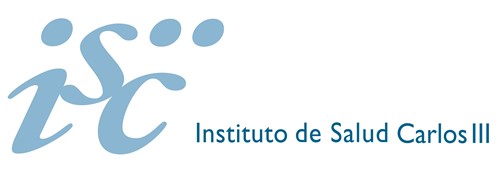

Latvian Science Council (LZP)
LZP follows the policies of Open Science, scientific integrity, gender diversity and operates in line with the Latvian Open Science Strategy. The Strategy aims to provide society, researchers, businesses, policymakers and other stakeholders with freely accessible scientific information, as well as to promote meaningful societal engagement in the scientific research process.
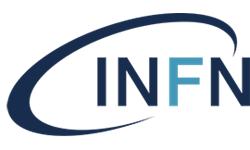
National Institute for Nuclear Physics (INFN)
INFN promotes Open Access as defined by the Berlin Declaration on Open Access to Knowledge in the Sciences and Humanities.

Luxembourg National Research Fund (FNR)
The Luxembourg National Research Fund has policies on fair research data and Open Access in line with Plan S principles and directly supports Open Science via a dedicated Open Access Funding programme.
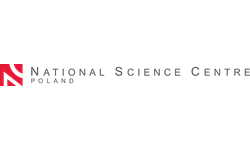
National Science Centre (NCN)
NCN has implemented Open Access solutions with respect to research data and publications, while its proposal and report assessment procedures are informed by the principles of DORA – the San Francisco Declaration on Research Assessment.

Research Council of Norway (RCN)
The Research Council of Norway has adapted an Open Science policy (2020) that emphasizes Open Science processes, user involvement and citizen science. The RCN joined cOAlition S in 2018 and require that publications resulting from calls put out after 1 January 2021 are available immediately in line with the Plan S principles.

Research Foundation Flanders (FWO)
FWO requires that research results are published in Open Access.
Researchers funded by FWO are obliged to deliver an initial data management plan (DMP) within six months after the official start of the research project. A final updated version of the DMP needs to be enclosed with the final report upon completion of the project.
Researchers funded by FWO are obliged to register metadata of research output in the information system (CRIS) of their RPO according to FWO regulations. The metadata includes an Open Access- and Open Data label.

Science Fund of the Republic of Serbia (SFRS)
The Republic of Serbia has introduced a new Open Science policy in December 2024, which explicitly supports and prefers Diamond Open Access publishing venues.

Slovenian Research and Innovation Agency (ARIS)
The Slovenian Research Agency follows the policies of Open Science, scientific integrity, gender diversity and operates in line with the national research and innovation strategy.

Spanish National Research Council (CSIC)
The Digital CSIC repository is the Open Access platform for the dissemination and preservation of its scientific production, constituting one of the key pillars of the institution for the promotion of Open Science. Within the CSIC Open Science Strategy it is also worth to mention the Open Access Publication Program that offers different Open Access publications venues for CSIC authors. Lastly, CSIC supports different Open Science infrastructures.

Spanish State Research Agency (AEI)
The Spanish State Research Agency implements the obligation to publish in open access all articles and books resulting from all publicly funded calls, implements the definition and the effective of data management plans on all funding calls, includes open access and data management plans as evaluation criteria on all funding calls, and is developing an Open Science Strategy in collaboration with Ministry of Science and innovation, as well as other public agents of the Spanish Science, Technology and Innovation System.
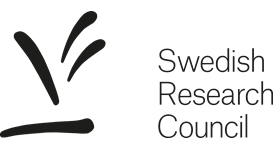
Swedish Research Council (VR)
A condition for receiving a grant from the Swedish Research Council is that the researcher publishes their research articles so that they are available to all, free of charge on the Internet. The Swedish Research Council also has a specific webpage about Open Science on its website.

Swedish Research Council for Health, Working Life and Welfare (FORTE)
The Swedish government’s objective is that the transition to an openly accessible publishing system should be fully implemented in 2026 at the latest. Forte works to drive the development forward, which includes making demands on the research we fund.
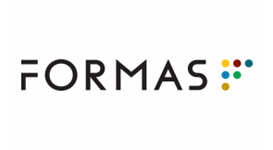
Swedish Research Council for Sustainable Development (FORMAS)
Research is a vital tool for achieving the sustainable development goals in Agenda 2030. For this to happen, Research results must benefit society and research that is publicly funded must be able to be put into practice. Formas is therefore actively involved in issues related to Open Science.
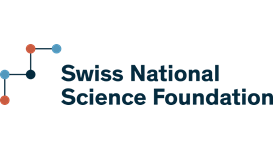
Swiss National Science Foundation (SNSF)
Research funded by the public should be publicly accessible as far as possible and free of charge. The SNSF is committed to this goal.
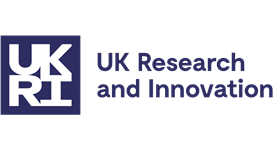
UK Research and Innovation (UKRI)
UKRI published its new Open Access policy for research articles and academic books in August 2021. The policy aims to make published outputs of UKRI-funded research widely and freely accessible, under conditions that allow maximum reuse. UKRI is also updating its research data strategy. We are taking a leading and coordinating role in overseeing the development of open research data policies, infrastructure and services, as outlined in our long-held research data commitments and highlighted in the final report of the Open Research Data Taskforce.
